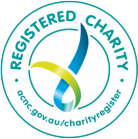We recognise that working with children or adults with a rare condition like albinism can be challenging. You may only ever meet one patient with albinism in your career and while your training may have covered low vision generally, it is not possible for all conditions to be covered.
We have additional information available for general health professionals (GP’s, nurses, support workers), allied health professionals, low vision specialists and NDIS planners on the condition including indications of albinism, diagnosis, prognosis, recent discoveries in types of albinism, purpose/methods of genetic testing and the major effects of low vision on daily living.
Medical specialists (including ophthalmologists, optometrists, orthoptists, dermatologists, paediatricians and geneticists) who require specific information, can contact us in order to connect with a professional of your speciality who has experience with albinism.
Those with albinism have the same chances of good health and mental capacity as the general population with the condition permanently affecting vision, while most also have sun sensitive skin. The exceptions to this are the even rarer albinism-related syndromes including Hermansky-Pudlak Syndrome (HPS), Chediak-Higashi Syndrome and Griscelli Syndrome, which can result in severe medical conditions. Genetic testing should be undertaken where these are suspected.
While albino is the commonly known term, most with the condition prefer it to be called albinism – they are a person first and albinism is only a small part of them. With simple accomodations and the use of assistive technology, people with albinism can expect to live normal lives, be educated, part of communities, have a job or career and raise a family.
Please use the form below to contact us, stating your profession and your query or requirements. If you prefer you can call 1300 22 16 19.


 Join us on Facebook
Join us on Facebook